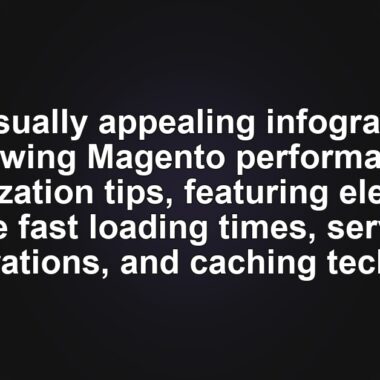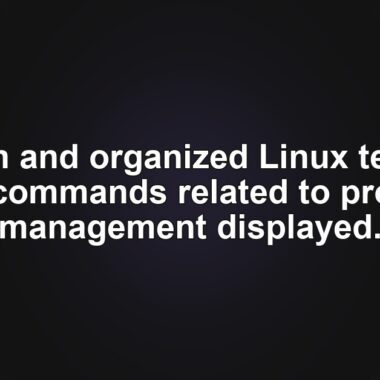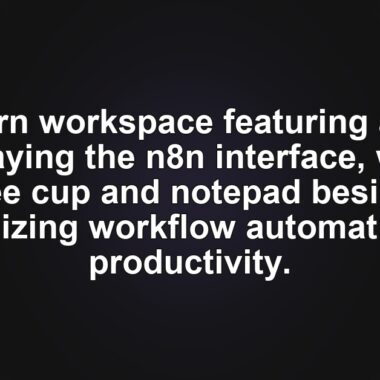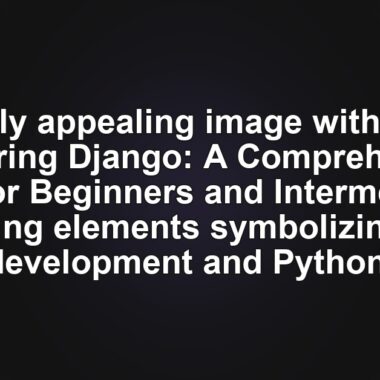Boost Your WordPress Site Speed with the Best CDN Services
Using a content delivery network (CDN) can significantly enhance your WordPress site’s performance and speed.
In today’s digital landscape, website speed is more critical than ever. A fast-loading site not only improves user experience but also positively impacts your SEO rankings. One effective way to boost your website speed is by implementing a Content Delivery Network (CDN). A CDN distributes your site’s static content from servers closest to your visitors, ensuring quicker load times. In this article, we’ll explore the benefits of using a CDN, provide insights on how to choose the right one, and recommend some of the best CDNs for your WordPress website. By the end, you will be equipped to make an informed decision about which provider to choose to speed up your site.
Benefits of Using a CDN
Integrating a content delivery network into your WordPress site offers numerous advantages:
- Faster Load Times: CDN services distribute your content across multiple edge servers, ensuring that users receive data from the nearest one. This reduces latency significantly, leading to faster website loading times.
- Improved User Experience: Quicker load times result in a better overall user experience, keeping visitors engaged and reducing bounce rates.
- Reduced Server Load: By offloading the delivery of static content to the CDN, your origin server experiences less strain, which leads to more efficient resource management.
- Enhanced Security: Most CDNs come with built-in security features, like DDoS protection, which helps safeguard your site from malicious attacks.
- Better Scalability: CDNs can handle high traffic volumes, making it easier to scale your WordPress site during peak times without compromising performance.
CDN Speed Test: With vs. Without CDN
To illustrate the impact of using a CDN, let’s look at a speed test conducted by the team at Hostinger. They performed over 42,000 tests on more than 10,500 client websites using Lighthouse to measure the CDN’s effect on performance.
The overall performance score derived from various metrics, such as First Contentful Paint (FCP), Speed Index (SI), Largest Contentful Paint (LCP), Cumulative Layout Shift (CLS), and Total Blocking Time (TBT). When the CDN was enabled, the average score improved from 86 to 90.
Here’s a breakdown of key metrics:
- Largest Contentful Paint (LCP): The average result dropped from 1541.62ms to 1236.54ms, a 19.79% improvement.
- Cumulative Layout Shift (CLS): The score improved slightly from 0.08 to 0.07, showing a 12.5% enhancement in site stability.
- First Contentful Paint (FCP): Interestingly, FCP showed a minor increase from 763.72ms to 771.07ms. Nevertheless, the improvements in LCP and CLS make this increase negligible.
How to Choose a WordPress CDN Provider
Selecting the right CDN provider is crucial for maximizing your WordPress site’s performance and reliability. Here are some tips on what to consider when choosing your CDN:
Assess Your Needs
Start by evaluating your website’s traffic level, budget, and specific features required. High-traffic websites require providers with extensive server networks and robust performance capabilities, while smaller sites may prioritize cost-effectiveness. Consider any specific requirements your site may have, such as advanced security features for eCommerce sites or efficient server caching for content-heavy websites.
Features to Look For
A good CDN provider should offer basic features such as:
- Global Reach: Essential for sites with an international audience, minimizing latency and improving load times.
- Robust Security Measures: Features like DDoS protection and SSL support to safeguard your site against cyber threats.
- Real-Time Analytics: Provides actionable data to monitor performance, identify issues, and optimize content delivery.
Ease of Integration
The CDN should be easy to set up and compatible with WordPress plugins. Look for providers that offer detailed setup guides, allowing you to quickly speed up your website without needing extensive technical knowledge.
Customer Support and Reliability
Reliable customer support and a strong reputation are essential when choosing a CDN provider. Look for providers with a track record of excellent service and support to resolve problems quickly and minimize downtime. Check reviews and case studies to see how other WordPress websites have benefited from the CDN.
6 Best CDNs for Your WordPress Website
With numerous options available, here are six of the best WordPress CDN providers that can enhance your site’s speed:
1. Hostinger CDN
Hostinger CDN stands out as the easiest CDN to implement, directly integrated into Hostinger‘s managed WordPress plans. This CDN feature allows users to activate it with just a few clicks on hPanel, providing a hassle-free solution for website speed enhancement.
Key Features
- Ease of Use: Activate or deactivate with just a few clicks.
- Real-Time Analytics: Insights into cache status and HTTP requests.
- Smart Image Optimization: Automatically resizes and compresses image files for both desktop and mobile users.
- Traffic Blocking: Filters traffic from certain IP addresses or specific countries.
- I’m Under Attack Mode: Enables a browser validation page for visitors to combat rapid DDoS attacks.
Drawbacks
- Limited to Hostinger: Only available for websites hosted on Hostinger.
- No Standalone Option: Comes as part of the WordPress hosting plans.
Pricing
Included in the managed WordPress Business ($3.99/month) and Cloud Startup ($9.99/month) plans.
2. Cloudflare
Cloudflare is one of the most popular CDN providers, caching content across numerous data centers worldwide while protecting websites from malicious traffic. It operates as a reverse caching proxy, allowing easy integration with WordPress.
Key Features
- Global CDN Network: Accelerates content delivery from over 200 data centers worldwide.
- Web Application Firewall (WAF): Protects against common web vulnerabilities.
- SSL/TLS Encryption: Provides free SSL certificates for secure data transmission.
- Cloudflare Workers: Allows running custom JavaScript at the edge for low-latency execution.
Drawbacks
- Limited Free Plan: Advanced features are locked behind paid plans.
- Customer Support: Some users report slow support responses.
Pricing
Offers free and paid plans, including Pro ($20/month), Business ($200/month), and Enterprise with custom pricing.
3. Amazon CloudFront
Amazon CloudFront is a robust CDN service integrated into the AWS ecosystem, caching content through a global network of over 310 Points of Presence (PoPs).
Key Features
- Global Network of Edge Locations: Enhances content delivery speed.
- Lambda@Edge: Allows running custom code closer to the user.
- Integration with AWS Services: Seamlessly works with AWS services like S3 and EC2.
- Advanced Security: Includes AWS Shield for DDoS protection.
Drawbacks
- Learning Curve: Requires understanding of AWS infrastructure.
- Pricing Complexity: Variable rates based on data transfer and requests.
Pricing
Includes a free tier as part of AWS free usage policy, with regional-based pricing.
4. Bunny CDN
Bunny CDN is a cost-effective CDN service based in Slovenia, offering a global network of over 120 edge locations for quick and reliable content delivery.
Key Features
- Bunny Optimizer: On-the-fly image optimization and conversion to WebP.
- Perma-Cache: Stores cache files permanently on edge locations.
- Edge Rules: Custom configurations for caching and routing.
- Integration with WordPress: Simple setup with the bunny.net plugin.
Drawbacks
- Limited Free Plan: Only a 14-day free trial available.
- Clash with Other Plugins: Possible incompatibility with certain plugins.
Pricing
Pay-as-you-go model starts at $0.01/GB.
5. StackPath
Formerly MaxCDN, StackPath enhances website speed and security, offering advanced features for developers and businesses.
Key Features
- SSL Certificate Management: Simplifies SSL certificate processes.
- EdgeRules: Customizable rules for content delivery and caching.
- Serverless Scripting: Runs custom scripts at the edge.
- Instant Purge: Quickly updates cached content globally.
Drawbacks
- Limited Edge Locations: Fewer locations in Africa and South America.
- Less Transparent Pricing: Detailed pricing info requires contacting sales.
Pricing
Free account available for pricing exploration; offers a $500 reward credit for new customers.
6. KeyCDN
KeyCDN is a high-performance, easy-to-use CDN service suitable for startups and small businesses.
Key Features
- Origin Shield: Reduces the load on your origin server.
- HTTP/2 Support: Enhances delivery speed for both static and dynamic content.
- Complete Compression Methods: Various techniques to reduce file sizes.
- Quick Global Updates: Deploys content configuration quickly across the network.
Drawbacks
- Minimum Credit Requirement: $49 minimum payment might be a hurdle.
- Additional Costs for Advanced Features: Some features incur extra charges.
Pricing
Regional-based pay-as-you-go pricing ranges from $0.01 to $0.1/GB, with a minimum usage fee of $4/month.
Beyond CDN: Extra Steps to Maximize WordPress Speed
While using a CDN is an excellent way to speed up WordPress sites, there are several other methods to optimize your website’s performance:
- Optimize Images: Use compression tools to reduce file sizes without losing quality.
- Implement Caching: Caching plugins store static versions of your pages for faster loading.
- Minify CSS and JavaScript: Reduce file sizes by eliminating unnecessary characters.
- Use a Performance-Optimized Theme: Choose lightweight themes designed for speed.
- Regular Updates and Maintenance: Keep WordPress, themes, and plugins updated for optimal performance.
Conclusion
In this article, we’ve explored the six best WordPress CDN services that can improve your site’s speed, security, and overall performance. Our top recommendations are:
- Hostinger CDN: Ideal for those seeking a complete hosting and CDN package.
- Cloudflare: A great option for budget-conscious users looking for essential CDN services.
When choosing a CDN, consider your specific needs, including budget, technical requirements, and desired features. Combining a CDN with other optimization strategies will ensure your WordPress site remains fast, secure, and reliable, providing the best possible experience for your visitors.
Best CDN for WordPress FAQ
What Are the Potential Drawbacks of Using a CDN With WordPress?
Using a CDN can increase setup complexities, leading to potential compatibility issues. To minimize these, consider using a CDN integrated into your hosting provider, like on Hostinger’s managed WordPress plans.
How to Measure the Impact of a CDN on WordPress Speed?
Measure the impact of a CDN using tools like Google PageSpeed Insights, GTmetrix, or Pingdom. These tools analyze load times and performance scores to provide insights on the CDN’s effectiveness.
Who Should I Contact for Support if I Encounter Issues With a CDN?
Contact your CDN provider’s customer support for any issues. For WordPress-specific problems, consider reaching out to the WordPress forums or your web hosting provider.
Where Can I Get a Free CDN for My WordPress Site?
Try a free CDN from Cloudflare, which offers a comprehensive free plan that includes basic CDN services and DDoS protection, making it an excellent choice for budget-conscious users.
👉 Start your website with Hostinger – get fast, secure hosting here 👈
🔗 Read more from MinimaDesk:
- How to Disable xmlrpc.php in WordPress: A Step-by-Step Guide
- Mastering the WP-Content Directory in WordPress
- The Ultimate Guide to WP-Content: Access, Upload, and Hide Your WordPress Directory
- Mastering WordPress RSS Feeds: A Beginner’s Guide
🎁 Download free premium WordPress tools from our Starter Tools page.








